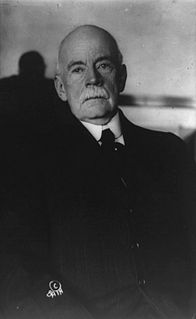A Quote by Francis Bacon
...those experiments be not only esteemed which have an immediate and present use, but those principally which are of most universal consequence for invention of other experiments, and those which give more light to the invention of causes; for the invention of the mariner's needle, which giveth the direction, is of no less benefit for navigation than the invention of the sails, which give the motion.
Related Quotes
There are many points in the history of an invention which the inventor himself is apt to overlook as trifling, but in which posterity never fail to take a deep interest. The progress of the human mind is never traced with such a lively interest as through the steps by which it perfects a great invention; and there is certainly no invention respecting which this minute information will be more eagerly sought after, than in the case of the steam-engine.
Man is made for science; he reasons from effects to causes, and from causes to effects; but he does not always reason without error. In reasoning, therefore, from appearances which are particular, care must be taken how we generalize; we should be cautious not to attribute to nature, laws which may perhaps be only of our own invention.
Home is the place you return to when you have finally lost your soul. Home is the place where life is born, not the place of your birth, but the place where you seek rebirth. When you no longer have to remember which tale of your own past is true and which is an invention, when you know that you are an invention, then is the time to seek out your home. Perhaps only when you have come to understand that can you finally reach home.
Ceremony is an invention to take off the uneasy feeling which we derive from knowing ourselves to be less the object of love and esteem with a fellow-creature than some other person is. It endeavours to make up, by superior attentions in little points, for that invidious preference which it is forced to deny in the greater.
The Bible must be the invention of either good men or angels, bad men or devils, or of God. It could not be the invention of good men or angels, for they neither would or could make a book, and tell lies all the time they were writing it, saying, 'Thus saith the Lord,' when it was their own invention. It could not be the invention of bad men or devils, for they would not make a book which commands all duty, forbids all sin, and condemns their souls to hell for all eternity. Therefore, I draw this conclusion, that the Bible must be given by divine inspiration.








































